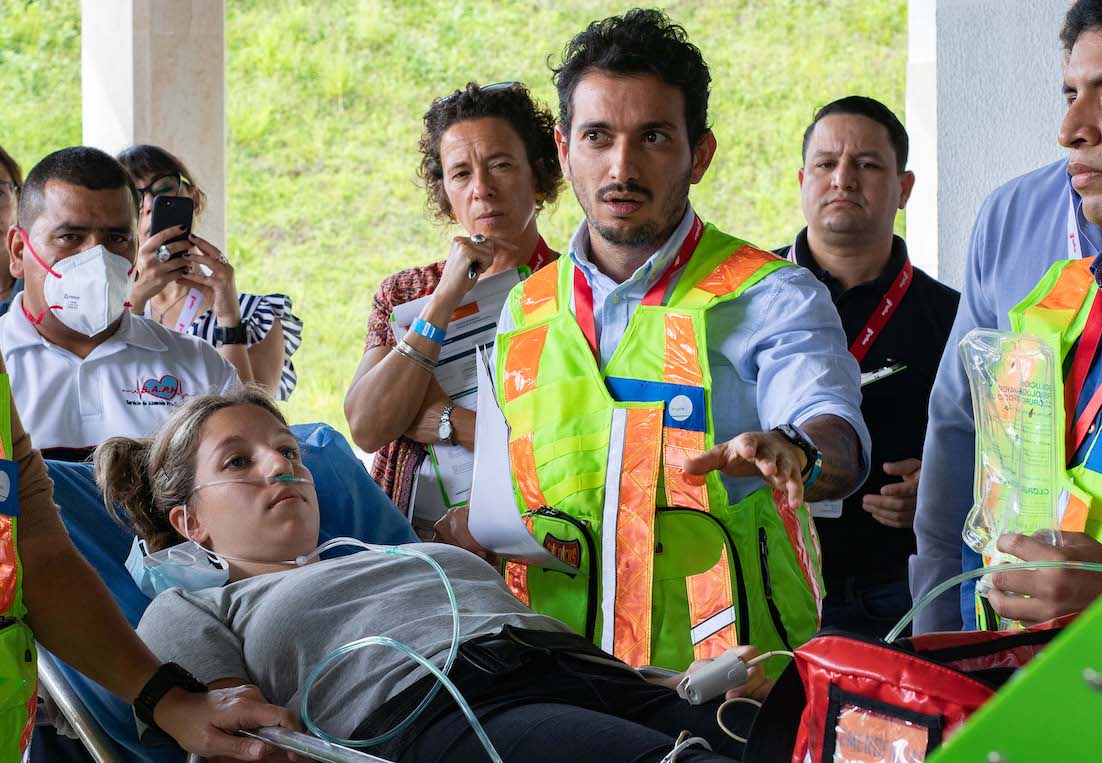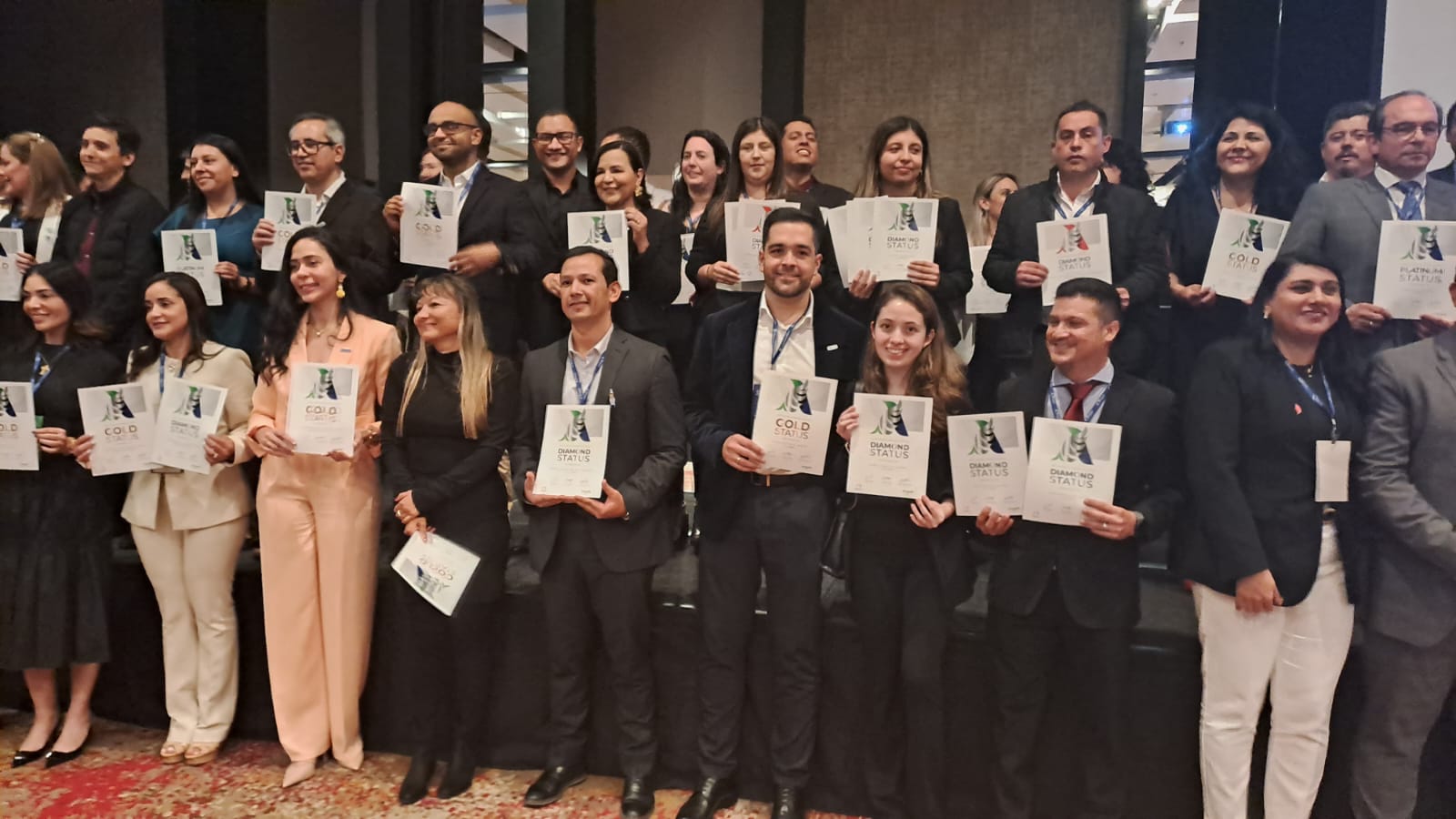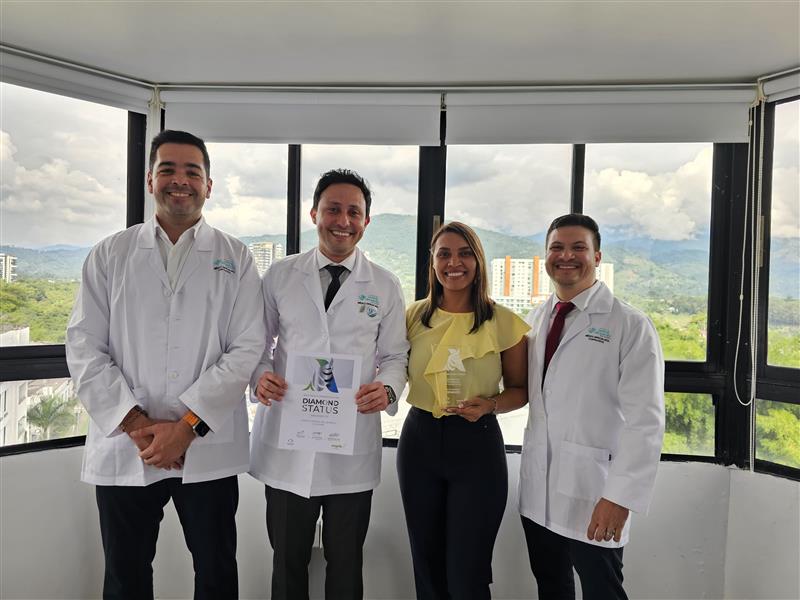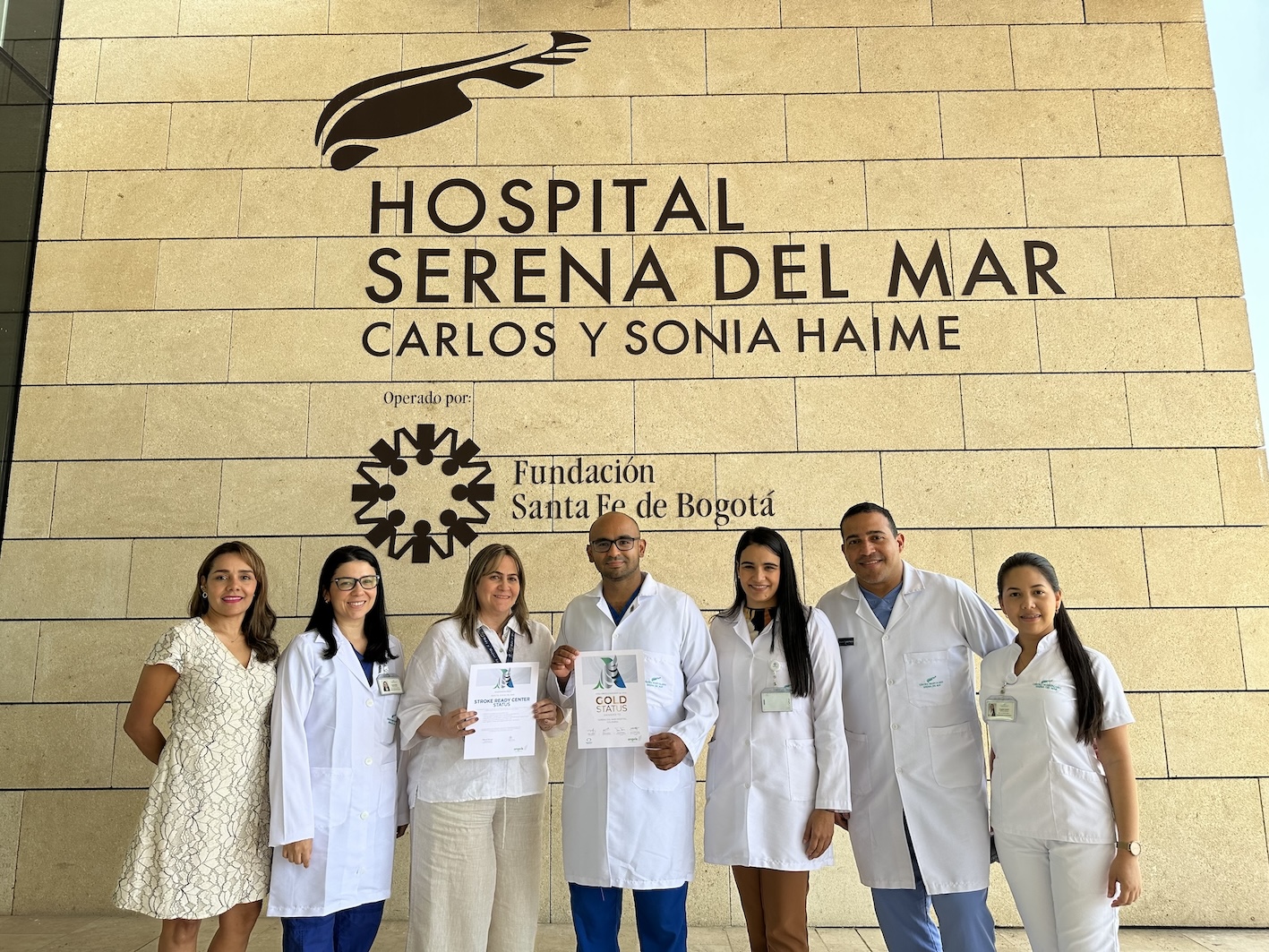
Le Dr Claudio Jiménez est neurologue et neurophysiologiste à l'hôpital de Bogota à Bolvar et directeur du centre neuro-vasculaire pour le sous-réseau nord de la ville. Un peu plus de quatre ans se sont écoulés depuis qu'il a pénétré dans l'établissement de santé qui se trouve entre une route principale très fréquentée et l'un des plus grands favelas de Bogota. Achevé en 1982 et nommé en l'honneur du héros libérateur dont la statue domine la place centrale de Bogota, l'Hôpital de Bolvain a subi pendant plusieurs années un processus de rénovation et d'expansion alors que dans son service de neurologie, une révolution silencieuse était en cours.
Le leader de cette révolution a été attiré par sa profession par la passion et par l'"intrigue philosophique et le mystère physique cachés dans l'esprit" – le Dr Jiménez a donc écrit dans un message sur la page Instagram @neuro_filos où il partage des développements en neurologie avec ses près de 50 000 abonnés.
"Lorsqu'on sauve du tissu cérébral, on sauve le tissu social", la même page annoncée, offrant un aperçu de quelque chose d'autre qui motive le Dr Jiménez, à savoir le devoir de construire une ressource qui appartient et sert les intérêts de chacun.
Éloigné de ces passions jumelles, il a rejoint l’hôpital de Bolvar en août 2019 et s’est engagé dans une série d’interventions qui ont commencé par la constitution d’une équipe pour la prise en charge de l’accident vasculaire cérébral. "Depuis ce moment de ma vie a radicalement changé", a-t-il dit à l'Association médicale colombienne dans un entretien en 2021, date à laquelle le programme de soins neuro-vasculaires de l'hôpital avait déjà remporté le deuxième de ses trois Angels Diamond Awards de la WSO.
Ce qui avait commencé par la curiosité sur la façon dont le cerveau crée notre perception de la réalité, et le désir de soulager la souffrance, a évolué vers une vision de la réforme des soins de santé publique dans une société de soins. C'est le rêve du Dr Jiménez que tous ceux qui fabriquent Bogota leur maison devraient, s'ils se rendent à l'hôpital, être soignés avec qualité et humanité.
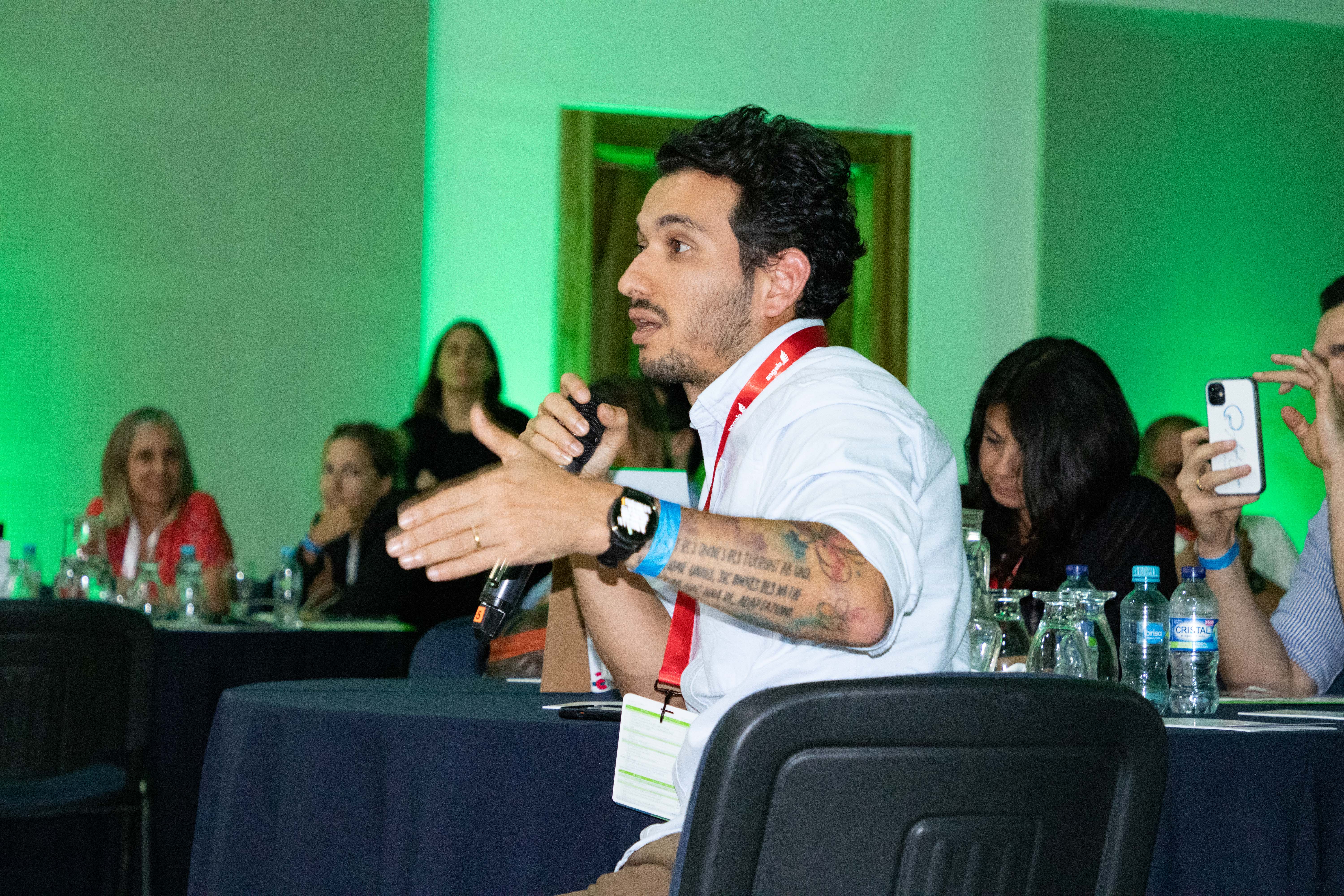
Les grands problèmes et un avenir prometteur
"Quand j'ai commencé à travailler à l'hôpital de Simàn Bolvar", dit le Dr Jiménez, "J'ai découvert qu'il y avait plusieurs petits problèmes, mais un grave et urgent, qui était de créer un protocole d'accident vasculaire cérébral et de standardiser les soins. Cela nous a conduits à créer le premier réseau accident vasculaire cérébral dans le pays et le premier centre neuro-vasculaire dans le réseau public colombien qui a été certifié par la WSO.
"Nous prenons maintenant en charge 450 à 500 patients victimes d'accident vasculaire cérébral ischémique par an, et traitons plus de 110 patients par thrombolyse, mais il existe encore un déficit profond d'accès à la thrombectomie.Nous travaillons avec notre secrétaire de santé pour créer un réseau d'accident vasculaire cérébral de district qui cherche à éliminer les barrières d'accès à la thrombectomie mécanique.
"Il faut considérer que dans le seul réseau public de Bogota, il y a plus de 2000 cas d'accident vasculaire cérébral par an et que actuellement le nôtre est le seul établissement public qui peut offrir cette procédure.
"Mais bien que les perspectives actuelles restent sombres, je vois un avenir très optimiste. L'avancée la plus importante est que la population est de plus en plus consciente des symptômes d'un accident vasculaire cérébral, elle apprend à consulter les services d'urgence à temps.
"Maintenant on veut traiter l'accident vasculaire cérébral avant l'accident vasculaire cérébral. C'est-à-dire que nous travaillons sur un programme qui nous permet d'identifier et d'évaluer les patients présentant des facteurs de risque et de les traiter pour prévenir l'accident vasculaire cérébral."
À Simyn Bolvar, le programme sur l’accident vasculaire cérébral réside désormais dans un programme de neurologie complet qui comprend un centre de neurorééducation et un groupe de neuroimmunologie dirigé par le Dr Maria Isabel Reyes, formée par Johns Hopkins, qui s’occupe des patients atteints de neuroinfections, dont le VIH. Il existe également des cliniques pour les céphalées et la toxine botulique pour traiter la spasticité et les troubles moteurs et, dans le cadre de la maladie, un service de neurologie d’urgence qui traitera les affections neurologiques aiguës en plus de l’accident vasculaire cérébral.
Le Dr Jiménez dit "Nous comprenons de plus en plus que les maladies neurologiques sont un problème de santé publique. Il y a encore un manque de ressources, de financement et d'accès à certaines aides diagnostiques fondamentales, mais je dois dire que nous nous améliorons".
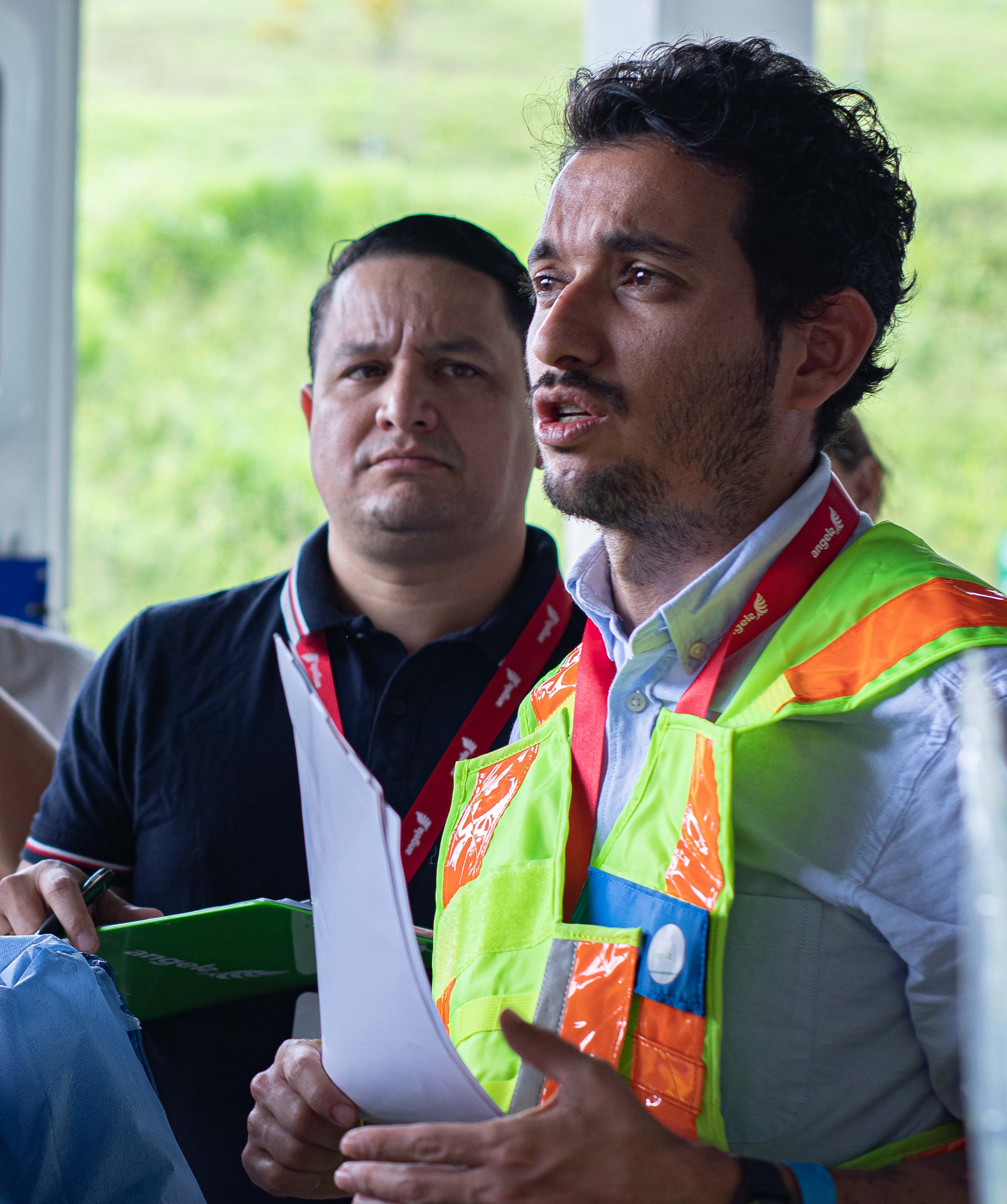
Justice poétique
Campagneneur de justice sociale dans le domaine de la soins de santé, le style d'expression imaginatif du Dr Jiménez le marque également comme un philosophe-poète.
Il dit : "J'ai appris àutiliser la médecine et ma pratique médicale comme outil de réflexion sur la vie elle-même, sur ce qui doit être important et ce qui ne doit pas, à la recherche du sens s'il y en a un, d'être ici sur cette énorme roche verte et bleue, de vivre quelque chose comme la conscience.
"La terre est pleine de vie, des plantes aux formes innombrables de vie animale, et bien qu'il y ait une expérience cognitive et émotionnelle chez tout le monde, nous sommes les seuls à nous interroger, nous identifier et aussi transformer l'environnement pour éviter de nous y adapter.
"Donc vous voyez toutes ces souffrances, vous voyez quelqu'un qui perd son langage. Il y a quelques minutes, tu pourrais dire "je t'aime", quelques minutes, tu pourrais écrire une ligne qui transformerait les pensées éthérées en lettres. Il y a quelques instants, vous avez eu la liberté de vous serrer les bras, de courir, de faire une expression de joie ou de tristesse, puis soudainement, elle est perdue. Soudain on ne peut pas faire des câlins, on ne peut pas dire 'Je t'aime'.
"L'accident vasculaire cérébral est comme un prédateur qui nous trébuche tous, à tout âge, et comme s'il s'agissait d'un ambassadrice, il fait tomber notre humanité, ou quelque chose d'essentiel pour elle.
"Je vois des centaines de personnes chaque année souffrir de la morsure de cet animal, et je dois voir ce qu'il reste, et puis on fait tous les efforts pour s'en occuper, réparer les dégâts, comme si on traitait une morsure d'un animal invisible.
"Eh bien, l'histoire est résumée en ce que j'ai décidé d'investir ma vie dans le traitement de l'accident vasculaire cérébral, de sorte que personne n'arrête de dire 'je t'aime'. Je le résume en une phrase, 'Lorsqu'on sauve du tissu cérébral, on garde du tissu social'. Mais on pourrait aussi dire, "Quand on sauve du tissu cérébral, le monde continue à dire que je t'aime".
